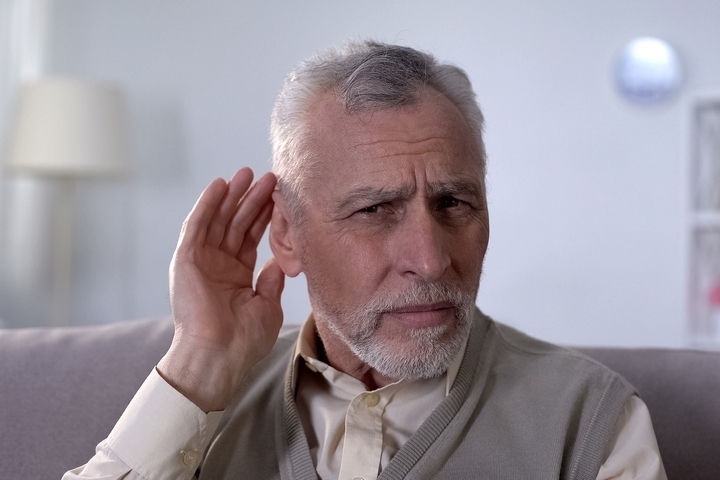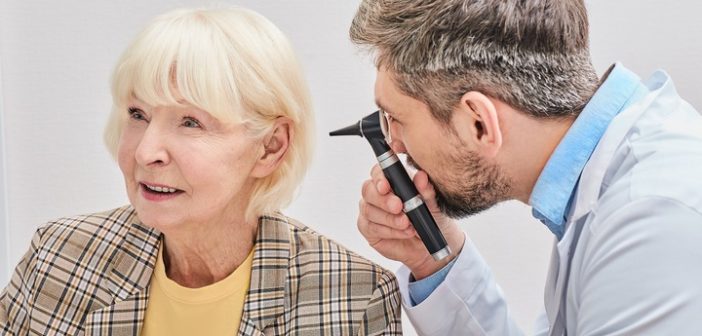No matter how our days look like, hearing what goes on around us is as natural as walking. In fact, all of your five senses are pivotal to the healthy functioning of your daily life. From the bustling noises of the city around you, to the serene sounds of a forest, hearing is critical. Sometimes, we may lose this ability to hear as we grow older.
While it may seem discomforting to know that your sense of hearing is decreasing, try to pinpoint the cause. Generally speaking, most adult causes of hearing loss have some sort of foundation that could be acted upon. Some sources may be hereditary, while others could be externally-located.
Here are the six common causes of hearing loss in adults:
Cause #1: Otosclerosis
 Otosclerosis is one of the most common causes of hearing loss in adults. As we age, our bodies begin to lose their optimal functioning. It is a natural means of growing older, and should be expected at some point in our lives. One of the most unfortunate side effects of this ageing is that, sometimes, disease may be associated with it. When it comes to hearing loss, otosclerosis is one of the biggest factors to be aware of.
Otosclerosis is one of the most common causes of hearing loss in adults. As we age, our bodies begin to lose their optimal functioning. It is a natural means of growing older, and should be expected at some point in our lives. One of the most unfortunate side effects of this ageing is that, sometimes, disease may be associated with it. When it comes to hearing loss, otosclerosis is one of the biggest factors to be aware of.
Our ears are made of tiny bones in and around the lobe, as well as deep inside the body part too. The middle part of the ear, which is comprised of the eardrum, may be susceptible to this diseases. Once it is acquired, the tiny bones located here are harder to move, resulting in some form of hearing loss.
Cause #2: Meniere’s Disease
 As mentioned previously, our ears are comprised of different sets of tiny bones. While the middle part of the ear may be vulnerable to otosclerosis, the inner area can also be targeted. Usually, this part may be susceptible to what is known as Meniere’s disease. Located in the inner ear, you may begin to hear a consistent ringing in the ear if you are in your thirties.
As mentioned previously, our ears are comprised of different sets of tiny bones. While the middle part of the ear may be vulnerable to otosclerosis, the inner area can also be targeted. Usually, this part may be susceptible to what is known as Meniere’s disease. Located in the inner ear, you may begin to hear a consistent ringing in the ear if you are in your thirties.
Meniere’s disease can lead you to also being sensitive to loud noises in general. For those who suffer from the worst parts of the disease, you may experience dizziness at some point. It is critical to always get this checked out with a specialist at a hearing clinic, should it apply to you. That way, you can take action before it gets worse!
Cause #3: Head Injuries
 High-performance athletes who put their bodies on the line know all about injuries in some form. From factors affecting their legs, to external contact impacting their heads, injuries are common in sport. Or, you may just be a regular individual who has experienced an unfortunate blow to the head.
High-performance athletes who put their bodies on the line know all about injuries in some form. From factors affecting their legs, to external contact impacting their heads, injuries are common in sport. Or, you may just be a regular individual who has experienced an unfortunate blow to the head.
Whatever the case may be, traumatic brain injuries are generally to be expected. Not only can these harm your brain’s health, but the extent of the strike can hurt your sense of hearing too. Recovery is the name of the game here, and must be taken seriously after the injury. Your hearing is critical, and can be healed with enough time.
Cause #4: Medication Overconsumption
 While it is generally recommended to take your medication as directed, overconsumption has become a big problem. Many patients who experience pain in varying respects may try to take more than what has been prescribed. These medications can range, from over-the-counter variants, to prescribed antibiotics.
While it is generally recommended to take your medication as directed, overconsumption has become a big problem. Many patients who experience pain in varying respects may try to take more than what has been prescribed. These medications can range, from over-the-counter variants, to prescribed antibiotics.
Your doctor or health care specialist will advise against this action in totality. Not only can it bring serious harm to your overall health, your sense of hearing may exacerbate alongside it. Large amounts of aspirin, for instance, are known to adversely affect your state of being.
Cause #5: Loud Noises
 Our environments are also a huge factor in determining how stable our sense of hearing will be. Should you find yourself in a setting that has constant loud noises, your hearing will be negatively impacted. Once this has become habitual, it may even lead to permanent hearing loss too. Try to mitigate your presence in these locations, in order to protect yourself.
Our environments are also a huge factor in determining how stable our sense of hearing will be. Should you find yourself in a setting that has constant loud noises, your hearing will be negatively impacted. Once this has become habitual, it may even lead to permanent hearing loss too. Try to mitigate your presence in these locations, in order to protect yourself.
Cause #6: Autoimmune Ear Disease
 Any sort of autoimmune condition results in the body losing its capacity to defend itself from illness. In fact, the tables are turned and the body starts attacking itself, which can lead to serious problems down the line. Autoimmune ear disease is a condition whereby this may actually occur.
Any sort of autoimmune condition results in the body losing its capacity to defend itself from illness. In fact, the tables are turned and the body starts attacking itself, which can lead to serious problems down the line. Autoimmune ear disease is a condition whereby this may actually occur.
For the most part, this occurs in the inner part of one’s ear, and can happen without warning at times. To prevent this from occurring, it is recommended to see a specialist as soon as possible. That way, the right medication can keep hearing loss to a minimum.
As we become older, the potential for illness to strike increases. Our hearing may be adversely affected in some capacity, leading to problems in varying magnitudes. Always take the time to see a medical professional for help, so that you can reduce hearing loss without worry.




